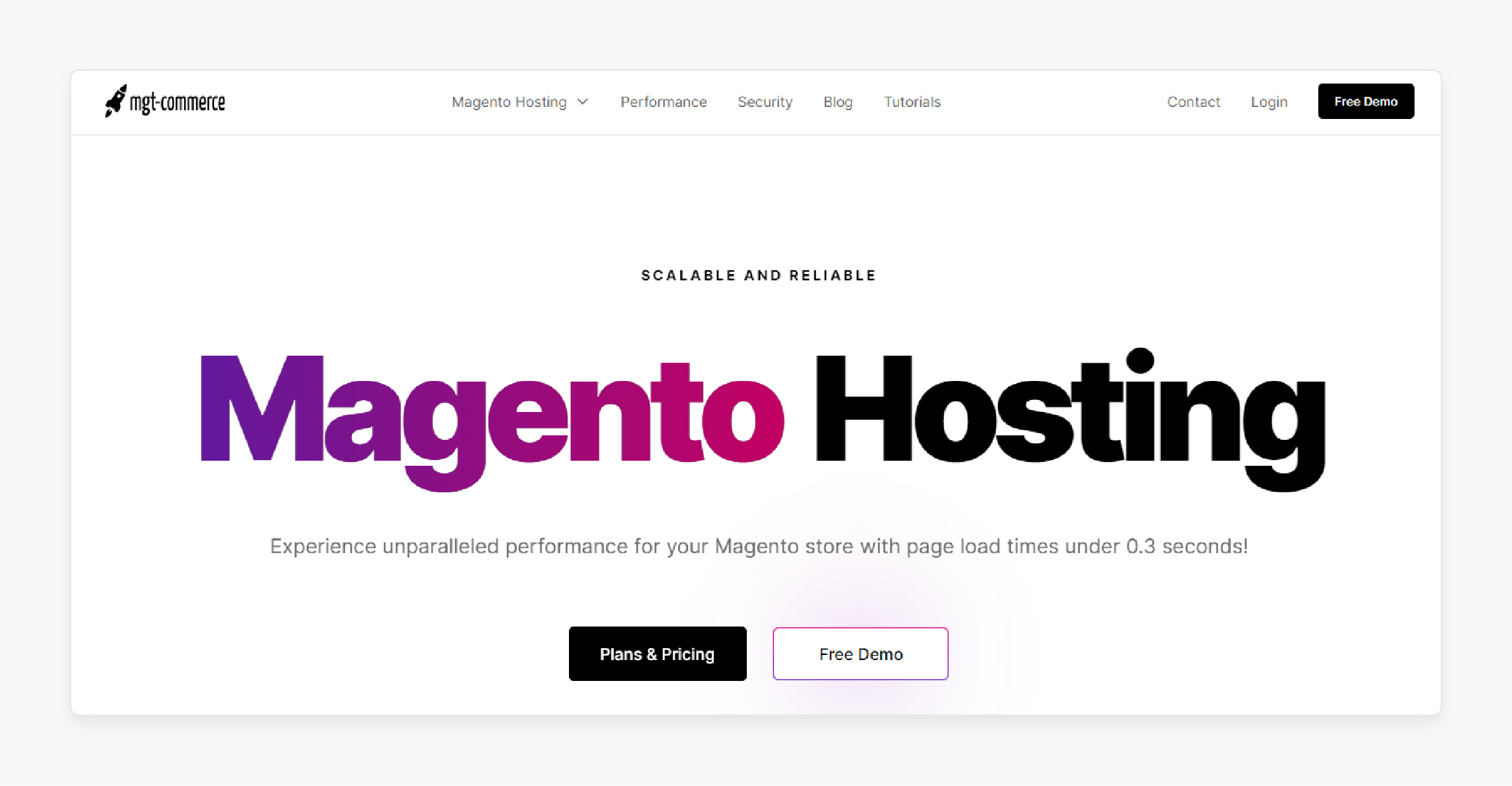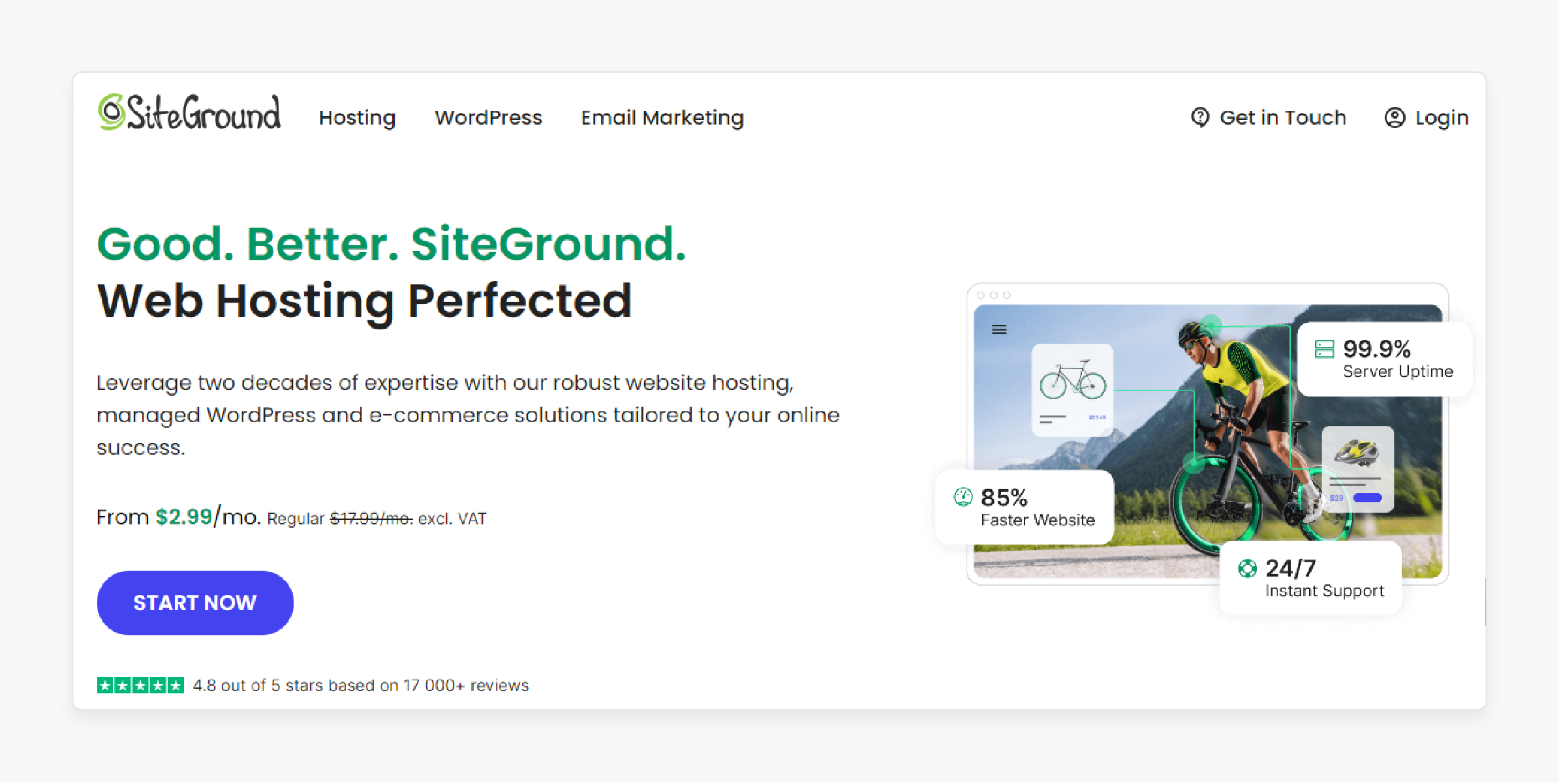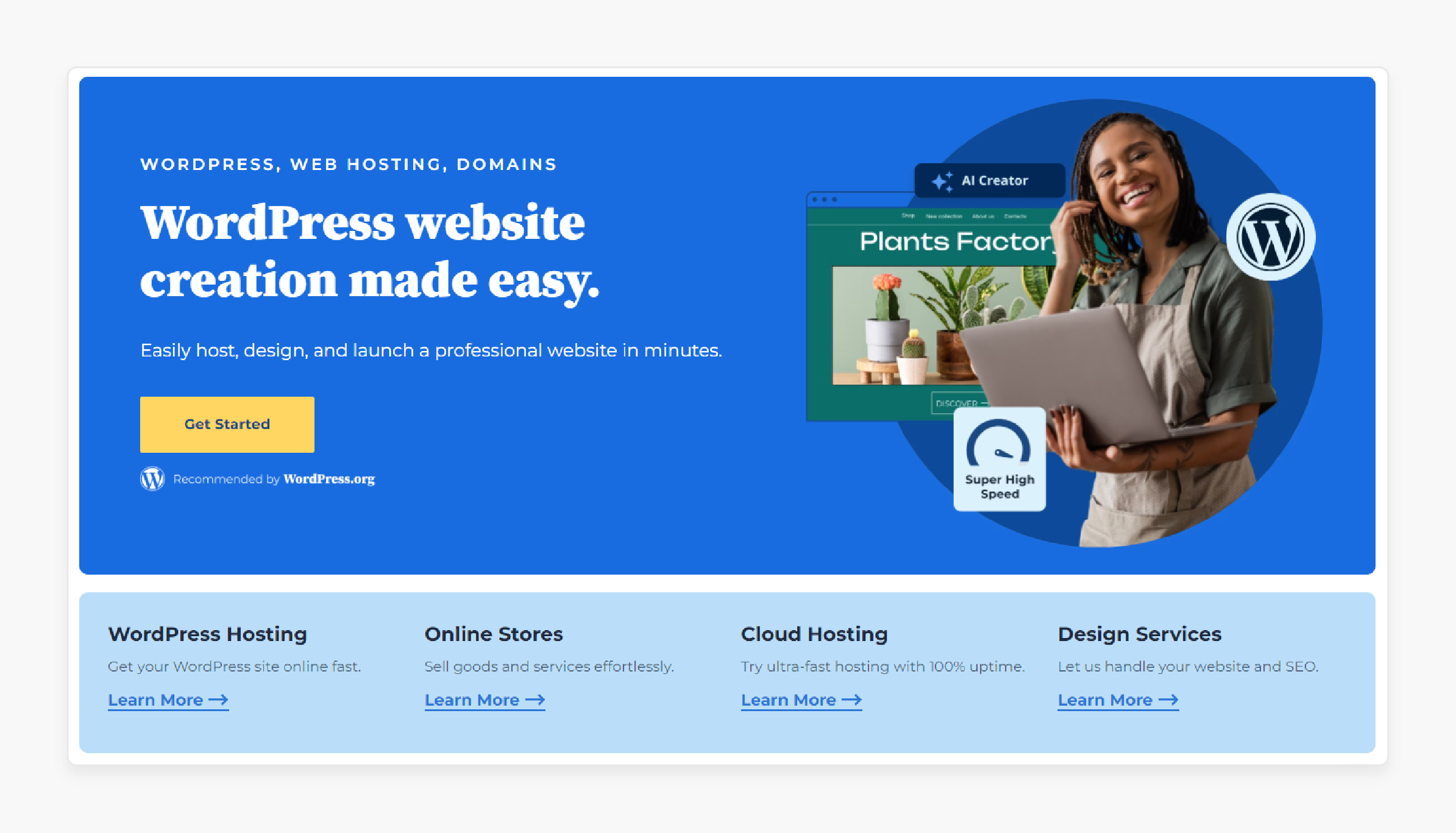
Best Magento 2 Hosting Providers: Features And Considerations
Looking for the best Magento 2 hosting provider? Best Magento 2 Hosting Providers offer tailored features and benefits to optimize your e-commerce platform. They emphasize features necessary for optimal performance and reliability.
This article will cover how to choose a hosting provider. It ensures high uptime, fast response times, secure transactions, and reliable customer support.
Key Takeaways
-
Discover the essential features to consider when choosing a Magento 2 hosting provider.
-
Learn how server uptime and response time impact your store's performance.
-
Understand the importance of security measures like SSL certificates and firewalls.
-
Explore caching technologies and their role in improving page load times.
-
Find out about the significance of customer support in maintaining a successful Magento 2 store.
Key Features of Best Hosting Providers
1. Auto-Scaling
Auto-scaling uses monitoring tools to track key performance metrics like CPU usage, memory consumption, and network traffic. When these metrics exceed predefined thresholds, the system automatically provisions additional resources to handle the increased load.
-
Auto-scaling allows your hosting environment to adjust resources based on demand automatically.
-
It ensures your Magento 2 store can handle traffic spikes without performance issues.
-
When traffic increases, auto-scaling provisions additional server resources to maintain optimal performance.
-
During low-traffic periods, auto-scaling scales down resources to minimize costs.
-
It is particularly beneficial for ecommerce businesses with fluctuating traffic patterns.
2. Caching
-
Caching is important for speeding up your Magento 2 store. It involves storing frequently accessed data in a cache. It reduces the need to retrieve it from the server each time.
-
Magento 2 hosting providers often offer built-in caching solutions like Varnish or Redis.
-
These caching mechanisms can store:
-
Static content
-
Database queries
-
Rendered pages
This capability enables faster page load times.
-
-
Efficient caching improves the user experience and helps handle high-traffic loads.
3. Content Delivery Network (CDN)
A CDN consists of a network of servers (called edge servers) distributed globally. When you use a CDN, copies of your static content (images, CSS, JavaScript files) are stored on these edge servers.
When a user visits your Magento store, the CDN detects their geographic location and serves the static content from the nearest edge server, rather than your main host server.
-
A CDN is a distributed network of servers. It delivers content to users based on their geographic location.
-
By integrating a CDN with your Magento 2 hosting, you can improve website performance and reduce latency.
-
CDN servers cache and serve static content like images, CSS, and JavaScript files. They do this from locations closest to the user.
-
This reduces the load on your primary server and ensures faster content delivery.
-
CDN integration is especially beneficial for Magento 2 stores with a global audience.
Hosting Requirements For Your Magento Website
1. Catalog Size
The number of products in your Magento 2 store directly impacts your hosting requirements. A larger catalog size means more data storage, processing power, and memory allocation. Consider the following hosting options based on your catalog size:
i. Small Catalog (< 1,000 products)
-
Shared hosting or entry-level cloud hosting plans may suffice.
-
Look for plans with adequate storage and bandwidth.
-
Ensure the hosting provider offers optimized environments for Magento 2.
ii. Medium Catalog (1,000 - 10,000 products)
-
Consider VPS hosting or mid-tier cloud hosting plans.
-
Opt for plans with higher storage capacity and CPU/RAM resources.
-
Look for hosting providers with Magento 2 optimization and caching solutions.
iii. Large Catalog (> 10,000 products)
-
Dedicated server hosting or high-performance cloud hosting is recommended.
-
Choose plans with ample storage, CPU cores, and RAM to handle the catalog size.
-
Ensure the hosting provider offers scalability and performance optimization for Magento 2.
2. Traffic Volume
Your website's traffic volume significantly impacts your hosting needs. Higher traffic requires more server resources to maintain fast page loads and smooth performance. Consider the following hosting options based on your expected traffic:
i. Low Traffic (< 1,000 daily visitors)
-
Shared hosting or entry-level cloud hosting can handle low traffic volumes.
-
Ensure the hosting plan provides sufficient bandwidth and CPU/RAM resources.
-
Look for hosting providers with Magento 2 optimization features.
ii. Medium Traffic (1,000 - 10,000 daily visitors)
-
VPS hosting or mid-tier cloud hosting is suitable for medium-traffic volumes.
-
Choose plans with higher bandwidth allowances and CPU/RAM resources.
-
Opt for hosting providers with built-in caching and performance optimization for Magento 2.
iii. High Traffic (> 10,000 daily visitors)
-
Dedicated server hosting or high-performance cloud hosting is necessary for high-traffic volumes.
-
Select plans with generous bandwidth, CPU cores, and RAM to handle the traffic load.
-
Look for hosting providers with auto-scaling, load balancing, and advanced caching solutions.
Criteria for Choosing the Best Magento 2 Hosting
1. Server Uptime
-
Server uptime refers to the availability of your Magento 2 website.
-
Look for hosting providers that guarantee a high uptime percentage, ideally 99.9% or above.
-
Reliable hosting ensures your store remains accessible to customers at all times. It minimizes the risk of lost sales and damage to your brand reputation.
-
Choose a hosting provider with a proven track record of maintaining consistent uptime.
2. Fast Response Time
-
Response time is the speed at which your Magento 2 store loads and responds to user requests.
-
A fast response time is essential for providing a positive user experience and improving:
-
Search engine rankings
-
Optimized server configurations
-
Caching technologies
-
Content delivery networks (CDNs) to enhance your store's performance.
-
-
Look for providers with a reputation for delivering fast page load times.
3. Server Location
-
The geographical location of your hosting server can impact your store's performance. It can also affect user experience.
-
Choose a hosting provider with servers located close to your target audience.
-
If your customers are primarily based in a specific region, choosing a server in that region can reduce latency. This improvement enhances loading speeds.
-
Some hosting providers offer multiple server locations, allowing you to choose the one that best suits your needs.
4. Magento 2 Security
-
Look for hosting providers that prioritize security measures to protect your store and customer data.
-
Key security features to consider include:
-
Regular security updates
-
Proactive monitoring
-
Choose a hosting provider that follows best practices for Magento 2 security. Ensure they offer additional security options if needed.
5. Customer Support
-
Reliable and responsive customer support is essential when running a Magento 2 store.
-
Look for hosting providers that offer 24/7 support through multiple channels, such as live chat, phone, and email.
-
Consider the quality and expertise of their support team, particularly in relation to Magento 2.
-
Choose a provider with a strong reputation for providing prompt and effective assistance whenever you need it.
6. Cache Technologies
-
Caching technologies greatly improve the performance of Magento 2 stores.
-
Look for hosting providers that offer built-in caching solutions optimized for Magento 2. Examples include Varnish, Redis, or Memcached.
-
These caching technologies store frequently accessed data in memory. This reduces the load on your server and enables faster page load times.
-
Ensure your chosen hosting provider has expertise in configuring and managing caching for Magento 2.
5 Best Magento Hosting Providers for Growing Catalogs
1. MGT Commerce

-
MGT Commerce offers fully managed Magento hosting solutions tailored for growing ecommerce stores.
-
Their hosting plans come with optimized server configurations, ensuring high performance and scalability.
-
MGT Commerce provides expert Magento support, proactive monitoring, and regular security updates.
-
They offer a range of hosting options. These include cloud hosting and dedicated servers.
2. Nexcess

-
Nexcess is a well-known provider of managed Magento hosting services. They offer a variety of hosting plans designed to accommodate stores.
-
Nexcess provides optimized server stacks, built-in caching technologies, and advanced security measures.
-
Their hosting platform is scalable, allowing you to upgrade resources. Nexcess also offers 24/7 support from Magento-certified experts.
3. SiteGround

-
SiteGround is a popular web hosting provider that offers optimized hosting for Magento stores.
-
They provide a range of hosting plans. These include shared hosting, cloud hosting, and dedicated servers.
-
SiteGround's hosting environment is optimized for Magento performance. It includes built-in caching and advanced security features.
-
They offer user-friendly tools for easy Magento installation and management.
4. Hostinger

-
Hostinger provides affordable hosting solutions for Magento stores. Their hosting plans are designed to accommodate growth.
-
They offer options for VPS hosting and cloud hosting. Hostinger provides a user-friendly control panel, which makes managing your Magento store easy.
-
They provide reliable uptime, fast server response times, and 24/7 customer support.
5. Bluehost

-
Bluehost is a well-established web hosting provider. They offer hosting solutions for Magento stores.
-
Their range of hosting plans includes shared hosting, VPS hosting, and dedicated servers.
-
Bluehost offers optimized server configurations for Magento performance and provides easy installation options.
-
They also offer 24/7 customer support and a user-friendly control panel.
Comparison of Pricing Plans for Magento Hosting Providers
| Provider | Plan | Price (per month) | Features |
|---|---|---|---|
| MGT Commerce | Starter | $50 | 2 GB RAM, 1 Core CPU, 50 GB SSD Storage, 1 TB Bandwidth |
| Business | $100 | 4 GB RAM, 2 Core CPU, 100 GB SSD Storage, 2 TB Bandwidth | |
| Enterprise | Custom | Custom resources based on requirements | |
| Nexcess | Starter | $49 | 2 GB RAM, 1 Core CPU, 30 GB SSD Storage, 1 TB Bandwidth |
| Creator | $79 | 3 GB RAM, 2 Core CPU, 60 GB SSD Storage, 2 TB Bandwidth | |
| Merchant | $149 | 4 GB RAM, 4 Core CPU, 100 GB SSD Storage, 3 TB Bandwidth | |
| SiteGround | StartUp | $6.99 | 10 GB SSD Storage, ~10,000 Monthly Visits, Free SSL, Daily Backup |
| GrowBig | $9.99 | 20 GB SSD Storage, ~25,000 Monthly Visits, Free SSL, Daily Backup, Staging | |
| GoGeek | $14.99 | 40 GB SSD Storage, ~100,000 Monthly Visits, Free SSL, Daily Backup, Staging | |
| Hostinger | Single Shared | $1.99 | 30 GB SSD Storage, 1 GB RAM, 100 GB Bandwidth, Weekly Backups |
| Premium Shared | $2.89 | 100 GB SSD Storage, 2 GB RAM, Unlimited Bandwidth, Daily Backups | |
| Business Shared | $3.99 | 200 GB SSD Storage, 4 GB RAM, Unlimited Bandwidth, Daily Backups, Free Domain | |
| Bluehost | Basic | $2.95 | 50 GB SSD Storage, Unmetered Bandwidth, Free SSL, 1 Website |
| Plus | $5.45 | Unlimited SSD Storage, Unmetered Bandwidth, Free SSL, Unlimited Websites | |
| Choice Plus | $5.45 | Unlimited SSD Storage, Unmetered Bandwidth, Free SSL, Unlimited Websites |
FAQs
1. What are the key features to look for in Magento 2 hosting providers?
When choosing a Magento 2 hosting provider, consider several features. Look for optimized performance and free SSL certificates. Check for dedicated hosting options. Ensure server monitoring is available. Look for managed hosting services.
2. Which hosting provider is known for offering managed Magento 2 hosting services?
MGT commerce and Cloudways is a popular choice for managed Magento 2 hosting services. It provides a fully managed hosting solution for Magento stores.
3. What is the importance of selecting the best hosting provider for Magento?
Choosing the best hosting provider for Magento ensures the smooth operation of your ecommerce business. This choice can impact the performance and security of your Magento store.
4. What are the differences between shared hosting, VPS hosting, and dedicated server hosting for Magento?
Shared hosting is cost-effective but has limited resources. VPS hosting offers more control and scalability. Dedicated server hosting provides the highest level of performance and flexibility for Magento sites.
5. Is A2 Hosting recommended as a hosting provider for Magento?
A2 Hosting is known to offer reliable and optimized hosting plans for Magento, making it a good choice for hosting Magento stores.
6. How important is it to have a fully managed Magento hosting solution?
Opting for a fully managed Magento hosting solution ensures that the hosting provider handles all technical aspects. They also take care of server maintenance and security updates. This allows you to focus on your business.
7. What should I consider when selecting a hosting plan for my Magento 2 store?
Consider factors like performance optimization, scalability, and security features when choosing a hosting plan. Also, consider customer support and the specific requirements of your Magento site.
Summary
Select the best Magento 2 hosting provider. Emphasize features important for performance and reliability. Ensure you choose the best hosting provider with these key considerations:
-
Server uptime, fast response times, and robust security measures (SSL, firewalls).
-
Utilize effective caching technologies like Varnish or Redis for improved page load speeds.
-
Select a provider with servers strategically located for your target audience.
-
Tailor your hosting choice based on catalog size and expected traffic volume.
Explore managed Magento hosting options carefully to choose the best hosting provider and enhance your Magento 2 store.




